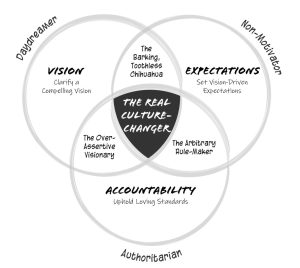Why Late Team Members Hurt Your Team (More Than You Think)
In the ever-evolving world of music ministry, there’s one issue that transcends generational gaps and demands our attention: the impact of team members showing up late. Whether you’re a tech-savvy Gen Z, a not-so-skinny-jean millennial, a Gen X guitar virtuoso, or a Baby Boomer choir conductor, the consequences of tardiness affect us all. Let’s dive into why this seemingly trivial issue is a far bigger deal than you might initially think.
Bad:
Imagine this: it’s the beginning of a rehearsal, and the band is tuned up, vocalists are ready to shine, and then it hits you – “Hold on, where’s [insert name]?” It could be any member – the drummer, the guitarist, the sound tech, or perhaps a background vocalist. The role doesn’t matter; what matters is your team isn’t ready, and that’s already a sour note. But guess what? It can get even more complicated.
Worse:
Consider another scenario: you scan the stage at the start of rehearsal, and half the team is MIA, while the rest are still setting up their gear. But hold onto your conductor’s baton; it gets worse.
Worst:
Now, picture this: you, the leader, stroll in fashionably late, thinking you can save the day and make up for lost time. Well, surprise, surprise, you find out the team is just following your lead (remember that “Worse” scenario?). Late. Tardy. Unpunctual. Call it what you want – it’s wreaking havoc on our worship teams in more ways than you’d imagine.
The Eight Late Losses
Let’s break down the eight ways that lateness is taking its toll on our music ministries:
- Loss of Rehearsal Time: Rehearsals stretch longer, or Sunday mornings become a chaotic scramble to catch up.
- Loss of Soundcheck/Warm-Up Time: Unlike midweek rehearsals, Sunday soundchecks have a set time limit. Latecomers squander precious moments.
- Loss of Respect Among Team Members: Beneath the surface, resentment and frustration brew. “This person is wasting our time. AGAIN.” It’s not just the latecomer – even leaders face a loss of respect.
- Loss of Focus for Team Members: Latecomers disrupt the flow, taking precious time to settle in and focus.
- Loss of Focus for the Leader: Worship leaders find their well-planned rehearsals turning into chaotic jam sessions.
- Loss of Time and Energy Outside Rehearsal: Confronting tardy members consumes emotional energy and precious time outside of rehearsals.
- Loss of Accountability: Tardiness left unchecked sends a clear signal – “It’s okay to be late!” When leaders are chronically late, the message amplifies.
- Loss of Foundational Values: Punctuality should be a cornerstone behavior for any worship team. Lose that, and other values start slipping too.
Seven Steps to Late-Proof Your Team:
How can you change this culture of lateness? Here are seven actionable steps:
- Never Accommodate the Late: Stick to your schedule. Don’t adjust rehearsal times to suit latecomers, penalizing the punctual.
- Talk About Why Promptness Matters: Discuss the importance of being on time with your team, using the “Late Losses” as a starting point.
- Lead by Example: Leaders, be early and exceptionally prepared. Set the standard for professionalism and punctuality.
- Change Your Language: Replace “start” time with “ready to play” time. Emphasize that on-time doesn’t mean arrival time.
- Start on Time: No exceptions. Even if some members are missing, let social pressure discourage tardiness.
- Confront the Chronically Late: Approach with grace, not blame. Use questions that show concern rather than accusations.
- Efficient Rehearsals: Run rehearsals efficiently. Eliminate excuses for latecomers who claim, “We waste so much time at the beginning anyway…”
It may seem impossible to change ingrained team habits, but check out this graphic:

Jon Nicol (the founder of WorshipTeamCoach.com) talks about this concept in his book, Exceptional Every Sunday.

There’s an entire chapter for developing your leadership muscle in each of these three areas — vision, expectations, and accountability. And then he digs into how to make them all work together.
(And bonus — He uses the issue of team member lateness to illustrate the point.)
Right now, you can get the digital version of Exceptional Every Sunday: Build a Worship Team That’s Consistently Excellent Week after Week (No Matter Who’s on the Platform) for a low-low price. And, you get a bonus bundle of trainings and tools to help you implement it quicker.
The Bottom Line
Promptness and lateness are universal habits for any worship ministry, bridging generational gaps. One builds a culture of respect and high standards, while the other sows disunity and chaos. Across generations, let’s keep the music flowing smoothly, harmonizing our voices and efforts. Together, we can create a harmonious worship experience for all.
This article was originally published in Worship Musician Magazine, October 2023 issue and has been modified from the original.
Stuck?
Learn how to level-up your team with this free video training.







